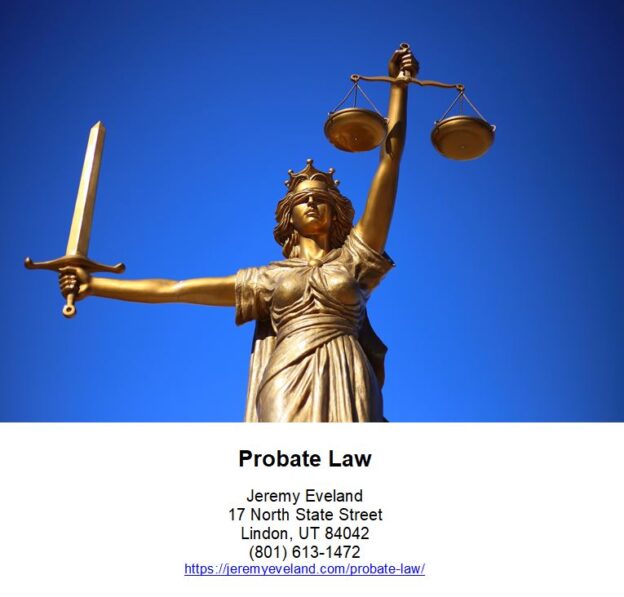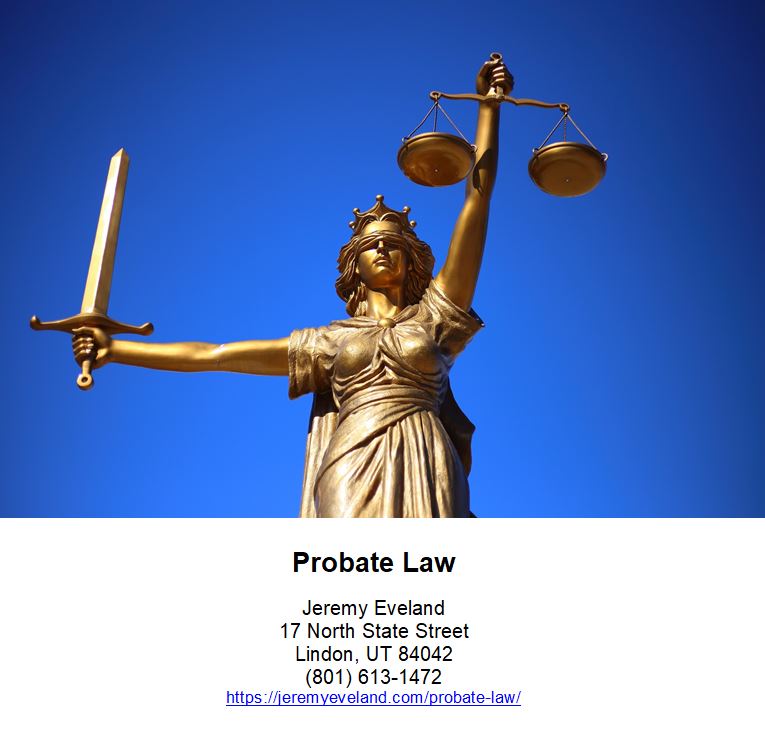When it comes to estate planning, it is crucial to take survivorship considerations into account. By understanding the importance of survivorship and incorporating it into your estate plan, you can ensure that your assets are protected and distributed according to your wishes. This article provides valuable insights into the intricacies of estate planning and highlights the significance of survivorship. For expert advice tailored to your specific needs, reach out to our trusted estate planning lawyer for a comprehensive consultation.
Overview of Estate Planning
Definition of estate planning
Estate planning refers to the process of creating a comprehensive plan for the management and distribution of your assets upon your death. It involves making decisions about how your property, finances, and other belongings will be handled and ensuring that your wishes are carried out. Estate planning can also involve making arrangements for the care and well-being of your loved ones, including minor children or individuals with special needs.
Importance of estate planning
Estate planning is crucial for a number of reasons. First and foremost, it allows you to have control over the distribution of your assets and ensures that your wishes are followed. Without a proper estate plan in place, your assets may be subject to distribution according to state laws, which may not align with your intentions.
Additionally, estate planning can help minimize the financial and emotional burden on your loved ones after your passing. It can provide them with clear instructions on how to manage your affairs and distribute your assets, reducing the chances of conflicts or legal disputes arising.
Moreover, estate planning can also offer important tax benefits and protections. By utilizing various strategies and tools, you can minimize estate taxes and ensure that your loved ones receive the full value of your assets.
Basic components of estate planning
There are several key components involved in estate planning:
- Will: A will is a legal document that outlines how you want your assets to be distributed after your death. It allows you to designate beneficiaries, name guardians for minor children, and specify any other instructions you may have regarding the division of your estate.
- Trusts: Trusts are legal entities that hold and manage assets on behalf of beneficiaries. They can offer greater control and flexibility in the distribution of your assets, as well as provide privacy and potential tax benefits.
- Power of Attorney: A power of attorney is a legal document that grants someone the authority to act on your behalf in financial and legal matters if you become incapacitated.
- Advance Healthcare Directives: These documents include a living will and healthcare proxy, which allow you to outline your medical preferences and appoint someone to make healthcare decisions for you if you are unable to do so yourself.
- Beneficiary Designations: Certain assets, such as life insurance policies and retirement accounts, allow you to name beneficiaries directly. Ensuring these designations are up-to-date is an important part of estate planning.
It is important to work with an experienced estate planning attorney to create a comprehensive plan tailored to your specific needs and goals.

This image is property of images.unsplash.com.
Survivorship Considerations in Estate Planning
Introduction to survivorship considerations
Survivorship considerations are an integral part of estate planning. They involve thinking about how your assets and financial responsibilities will be managed and distributed upon the death of a spouse or partner. By incorporating survivorship considerations into your estate plan, you can provide for the well-being of your loved ones and ensure a smooth transfer of assets.
Why survivorship considerations are important in estate planning
Survivorship considerations are crucial because they allow you to plan for the unexpected and ensure that your loved ones are taken care of after your passing. By addressing survivorship issues in your estate plan, you can minimize the financial and emotional burden on your surviving spouse or partner, children, and other beneficiaries.
It is important to remember that in the absence of proper planning, your assets may not be distributed according to your wishes. Survivorship considerations help avoid potential conflicts and disputes among family members, provide financial stability for the surviving spouse, and ensure a seamless transition of assets.
Factors to consider when planning for survivorship
When planning for survivorship, there are several factors to consider:
- Age and health of the surviving spouse: It is important to consider the age and health of your spouse or partner when determining the best way to provide for their financial well-being. This includes considering their long-term care needs and potential medical expenses.
- Financial needs of children or other beneficiaries: If you have children or other dependents, you must consider their financial needs and provide for their well-being in your estate plan. This can include establishing trust funds or setting aside resources for their education and upbringing.
- Estate tax implications: Survivorship planning can also involve minimizing estate taxes for the surviving spouse. By utilizing strategies such as the marital deduction and proper estate tax planning, you can potentially reduce the tax burden on your estate.
- Business succession planning: If you own a business, it is important to consider how it will be managed and transferred upon your death. This may involve creating a comprehensive succession plan and identifying potential successors or buyers.
By carefully considering these factors and working with an experienced estate planning attorney, you can create a survivorship plan that aligns with your goals and ensures the financial well-being of your loved ones.
Primary Goals of Survivorship Planning
Preserving and managing assets for the surviving spouse
One of the primary goals of survivorship planning is to preserve and manage assets for the surviving spouse. This involves ensuring that the surviving spouse has access to sufficient financial resources to maintain their lifestyle and cover their needs. By designating the surviving spouse as the primary beneficiary of certain assets and establishing trusts or other financial arrangements, you can provide ongoing support and protection for their future.
Providing for the financial well-being of children or other beneficiaries
Another important goal of survivorship planning is to provide for the financial well-being of children or other beneficiaries. This may include setting up trust funds or other financial vehicles to ensure that children are provided for in terms of education, healthcare, and general support. By carefully outlining the distribution of assets in your estate plan, you can ensure that your children or other beneficiaries receive their intended inheritance and are protected in the event of your passing.
Minimizing estate tax for the surviving spouse
Survivorship planning can also help minimize estate tax for the surviving spouse. By utilizing various estate planning tools and strategies, such as the marital deduction and the use of trusts, you can potentially reduce the tax burden on your estate and ensure that your assets are not eroded by excessive taxes. This can help preserve the value of your estate and provide maximum financial benefit to your surviving spouse and other beneficiaries.
Ensuring the smooth transfer of assets upon the death of the surviving spouse
Finally, survivorship planning aims to ensure the smooth transfer of assets upon the death of the surviving spouse. This involves creating a clear plan for the distribution of assets, naming beneficiaries, and specifying any other instructions you may have regarding your estate. By addressing these matters in advance, you can minimize the likelihood of conflicts or disputes among family members and provide a seamless transition of assets to the intended beneficiaries.
In order to achieve these primary goals of survivorship planning, it is essential to work with an experienced estate planning attorney who can guide you through the process and help you create a comprehensive plan that aligns with your objectives.
Estate Planning For Survivorship Considerations
Areas We Serve
We serve individuals and businesses in the following locations:
Salt Lake City Utah
West Valley City Utah
Provo Utah
West Jordan Utah
Orem Utah
Sandy Utah
Ogden Utah
St. George Utah
Layton Utah
South Jordan Utah
Lehi Utah
Millcreek Utah
Taylorsville Utah
Logan Utah
Murray Utah
Draper Utah
Bountiful Utah
Riverton Utah
Herriman Utah
Spanish Fork Utah
Roy Utah
Pleasant Grove Utah
Kearns Utah
Tooele Utah
Cottonwood Heights Utah
Midvale Utah
Springville Utah
Eagle Mountain Utah
Cedar City Utah
Kaysville Utah
Clearfield Utah
Holladay Utah
American Fork Utah
Syracuse Utah
Saratoga Springs Utah
Magna Utah
Washington Utah
South Salt Lake Utah
Farmington Utah
Clinton Utah
North Salt Lake Utah
Payson Utah
North Ogden Utah
Brigham City Utah
Highland Utah
Centerville Utah
Hurricane Utah
South Ogden Utah
Heber Utah
West Haven Utah
Bluffdale Utah
Santaquin Utah
Smithfield Utah
Woods Cross Utah
Grantsville Utah
Lindon Utah
North Logan Utah
West Point Utah
Vernal Utah
Alpine Utah
Cedar Hills Utah
Pleasant View Utah
Mapleton Utah
Stansbury Par Utah
Washington Terrace Utah
Riverdale Utah
Hooper Utah
Tremonton Utah
Ivins Utah
Park City Utah
Price Utah
Hyrum Utah
Summit Park Utah
Salem Utah
Richfield Utah
Santa Clara Utah
Providence Utah
South Weber Utah
Vineyard Utah
Ephraim Utah
Roosevelt Utah
Farr West Utah
Plain City Utah
Nibley Utah
Enoch Utah
Harrisville Utah
Snyderville Utah
Fruit Heights Utah
Nephi Utah
White City Utah
West Bountiful Utah
Sunset Utah
Moab Utah
Midway Utah
Perry Utah
Kanab Utah
Hyde Park Utah
Silver Summit Utah
La Verkin Utah
Morgan Utah
Estate Attorney Consultation
When you need help from an Estate Lawyer in Utah, call Jeremy D. Eveland, MBA, JD (801) 613-1472 for a consultation.
Jeremy Eveland
17 North State Street
Lindon UT 84042
(801) 613-1472
Related Posts
Business Lawyer American Fork Utah
How To Handle Customer Complaints In Utah
Business Lawyer Saratoga Springs Utah
The Role of Business Law in Protecting Minority Shareholder Rights
What Are The 4 Different Types of Business Law?
Business Lawyer Washington Utah
Business Lawyer South Salt Lake Utah
Legal Requirements for Utah Technology Startups
Business Lawyer Farmington Utah
Due Diligence For Buying A Utah Business
Understanding Utah’s Labor Laws
Business Lawyer North Salt Lake Utah
Product Liability Laws in Utah
Preventing Cybersecurity Breaches
Business Lawyer North Ogden Utah
Business Lawyer Brigham City Utah
Mastering Business Law: Key Essentials For Success
Business Lawyer Centerville Utah
Shareholder Agreements in Utah
Business Lawyer Hurricane Utah















